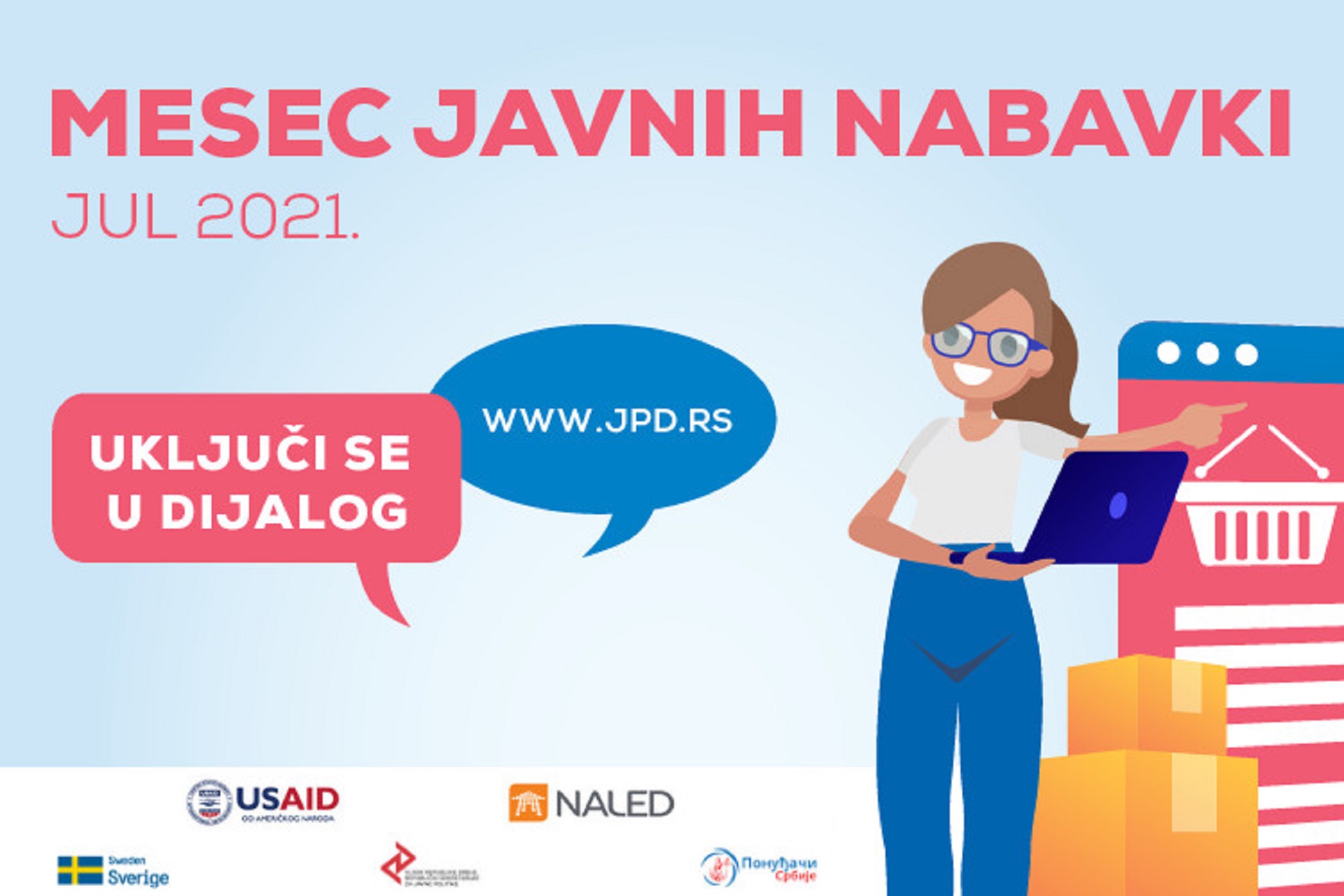Coronavirus led to a 65 billion RSD decline in public procurement
The Corona virus pandemic has adversely influenced the public procurement in Serbia. Even though there has been a higher number of concluded contracts in 2020 than in the previous years, their total value was lower by nearly 65 billion RSD. The share of public procurement in GDP has dropped under 7%, thus interrupting the growth trend since 2017. Further on, for the first time in the past 10 years, the average value of public procurements is lower than 3 million RSD.
Corona virus thus diminished the expected positive effects of the new Law on Public Procurement that came into force in mid-2020, obliging purchasers to perform procurement procedures in electronic form, with the aim of improving their efficiency, transparency and competition.
- NALED's new opinion survey on public procurement has shown that more than 90% purchasers and slightly more than 60% bidders are satisfied with the new regulations, but the numbers show that purchasers have rushed to perform procedures in line with the previous Law, and the old procedure was used to conclude 124,000 out of a total of 135,000 contracts. In Serbia, goods and services are purchased in line with the rules of the Law on Public Procurement, but there are also set exemptions, such as the procurement of legal services, loans or purchases financed from international agreements. There is a growing number of procurements exempted from the Law, and last year, there were 50 of them for every "regular" procurement, i.e. a total of 780,000. This is twice as much than in 2019 and such increase has never been recorded before. All of this implies that the purchasers were not ready for the new law, and that they, along with all other system participants, need further training. Additional education is one of the key activities within the two-year project „Effective public procurement for economic growth“, we are implementing with the support of Swedish International Development Agency (SIDA) – says Ana Ilić, Good Governance Director in NALED.
According to her, along with education, further work is also needed to popularize the benefits of the Public Procurement Portal, as well as its improvement. While the Portal now allows users to perform all key steps in a procedure, from launching a procurement to concluding a contract, the existing functionalities do not stipulate the implementation of urgent or secret procurement, they do not involve the phase of procurement planning (procurement request, market research...), nor the phase following the contract conclusion. The project will also define recommendations for introducing these functionalities.
- Last year has shown that we need to work much more on motivating purchasers to implement the cost-effectiveness criterion more than the lowest price criterion, in order to recieve more quality products and services. While the key criterion in 89% procurement processes in 2019 was the lowest price, the pandemic has further pushed this number to 94%. Nearly a half of purchasers believe it is complicated to set the criterion for the most cost-effective bid, without having a model to use as a basis, they think such procedures are risky and they lack the knowledge to implement them. Even 97% of purchasers stress that they need training so as to be able to favor quality over price – says Ilić.
Official statistics show that the average number of bidders per procurement in 2020 was slightly increased, from 2.5 to 2.6. In NALED's survey, this was confirmed by 14% of bidders claiming that the number of bids is higher by 25% on average, while two thirds have not noticed an increase. On the other hand, bidders stress that they do not take part in bids most commonly because they don't meet the requirements (43% responses) or they don't think the procedure will be fair and transparent (27%).
Along with the project „Effective public procurement for economic growth“, aimed at improving the procurement system and competition through capacity building of purchases, bidders and other stakeholders, as well as the Public Procurement Portal and the Registry of Bidders, NALED also works with the association Bidders of Serbia on implementing these goals within the project „Public Private Dialogue for Growth“ financed by USAID. In early July, NALED and Bidders of Serbia launched a campaign Month of Public Procurement, enabling all interested parties to nominate their proposals ad solutoions via website jpd.rs and contribute towards improving the public procurement system.
Challenges in implementation of the Law on Public Procurement:
- Large number of procedures exempted from the Law
- Requirements for taking part in procurement procedures are often discouraging for the bidders
- The criteria for selecting the best bid are most commonly based on the lowest price
- The procurement procedures do not use the criteria of quality, environmental impact, gender equality, energy efficiency, social inclusion etc.
- Procedures are not followed by an assessment of the quality of delivered service or goods, and the evaluation is not included in bidders' references
Potential solutions:
- More common application of cost-effectiveness criterion vs. the lowest price criterion
- Training for purchasers and bidders
- Developing a model for implementing the criterion of the most cost-effective bid
- Expanding the web portal functionalities (for performing procurement analysis, contract realization…)
- Improving the monitoring of the quality of performed tasks
- Reducing the number of exemptions from the Law on Public Procurement



